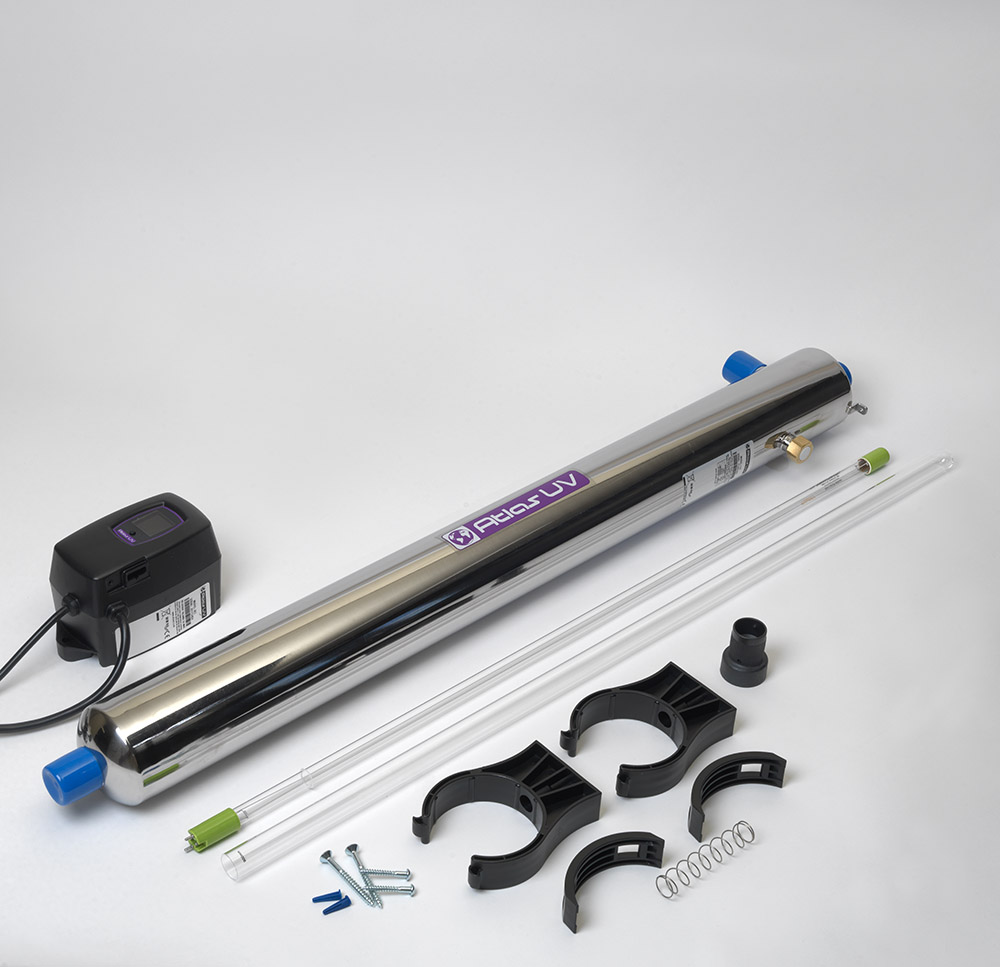Are UV Lamps Dangerous? Debunking 4 Myths about UV disinfection
UV disinfection systems have gained in popularity due to their effectiveness in purifying water. These systems rely on ultraviolet (UV) lamps to eliminate harmful microorganisms, such as bacteria and viruses, from water sources. However, as with any technology, questions about safety often arise.
Are UV lamps dangerous? Here, we will explore the safety of UV lamps used in water filtration systems and debunk some common myths surrounding their use.
Understanding UV disinfection
Before delving into the safety aspects, it’s essential to understand how UV water systems work. UV units used in water treatment use short-wave ultraviolet light to disinfect water by disrupting the DNA and RNA of microorganisms. When water flows through the UV chamber, it is exposed to this UV light, effectively rendering harmful microorganisms harmless. This process is chemical-free, environmentally friendly, and has been used for decades to ensure safe drinking water.
For more information about UV works see our page, How does UV disinfection work.
Myth 1: UV Lamps Emit Harmful Radiation
One common misconception about UV lamps is that they emit harmful radiation. While it’s true that UV lamps produce ultraviolet radiation, the type used in UV water filtration is UVC radiation. UVC radiation is germicidal and only operates within a specific wavelength range (around 254 nanometers), making it safe for water treatment. Importantly, UVC radiation cannot penetrate most materials, so it remains confined within the UV chamber. Therefore, there is no risk of exposure to harmful radiation when using a UV water filter.
Myth 2: UV Lamps Produce Ozone
Another myth associated with UV lamps is that they produce ozone, a potentially harmful gas. However, this is not the case for UV water systems. Ozone production occurs at specific UV wavelengths (around 185 nanometers), which are not used in these systems. UV disinfection units are designed to emit UVC light exclusively, ensuring that no ozone is produced during the water treatment process.
Myth 3: UV Lamps Release Mercury Vapor
UV lamps are indeed filled with mercury vapor, and this fact can raise concerns about potential mercury exposure. However, UV water filtration systems are constructed with safety in mind. The lamps are enclosed within a quartz sleeve, preventing any contact between water and mercury vapor. Even if the lamp were to break, the mercury would remain sealed within the lamp, posing no risk to the water or the environment. Proper disposal and recycling of UV lamps are recommended to ensure the safe handling of mercury-containing components.
Myth 4: UV Lamps Contribute to Vitamin D Deficiency
Some individuals worry that exposure to UV lamps used in water filtration systems may lead to a deficiency in vitamin D production in the skin. It’s important to note that the UV radiation used in these systems is contained within the chamber and does not penetrate the skin or promote vitamin D synthesis. Therefore, there is no risk of vitamin D deficiency associated with the use of Units
In conclusion, UV lamps used in water filtration systems are not dangerous when used correctly. These systems are designed with multiple safety features to ensure that UV radiation, mercury vapor, and ozone remain contained within the filtration unit. Moreover, the benefits of UV, disinfection such as the effective elimination of harmful microorganisms without the use of chemicals, far outweigh any minimal safety concerns.
If you’re considering installing a UV Disinfection unit in your home, rest assured that it is a safe and reliable method for purifying your drinking water. As with any appliance, it’s essential to follow the manufacturer’s guidelines for installation, maintenance, and lamp replacement to ensure optimal performance and safety. UV Water Filter offer peace of mind by delivering clean and safe drinking water for you and your family, without the risks associated with some of the myths surrounding UV lamps.

UV Units
A UV (ultraviolet) unit is commonly used in water treatment systems for domestic homes to disinfect and purify water. The UV unit serves as an effective way to kill or inactivate harmful microorganisms, including bacteria, viruses, and parasites, without the use of chemicals like chlorine.
UV Units are designed to provide low-cost, chemical-free disinfection solutions. See our available range below.

